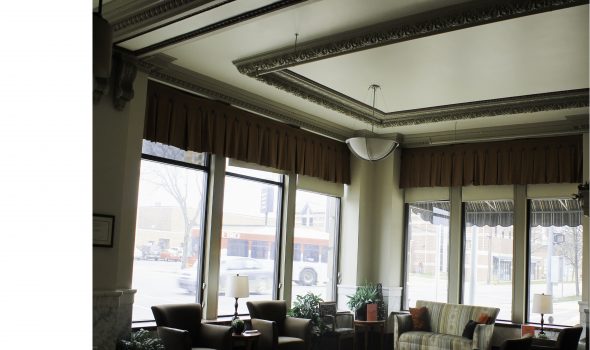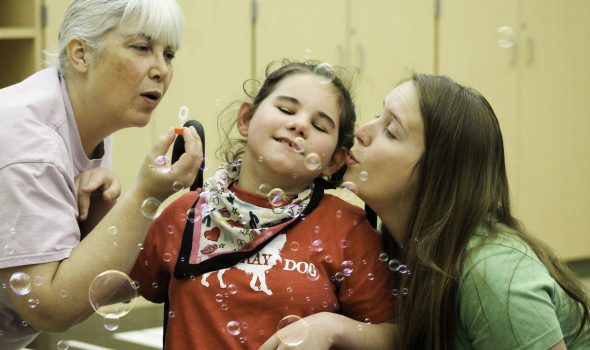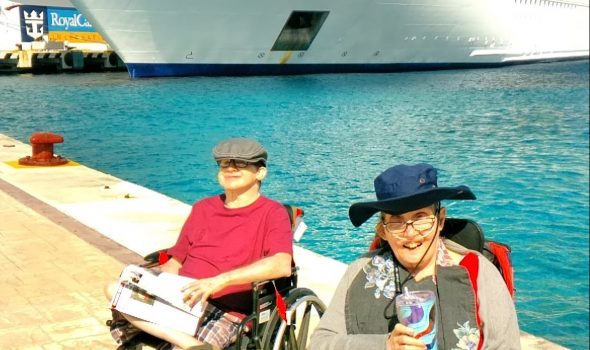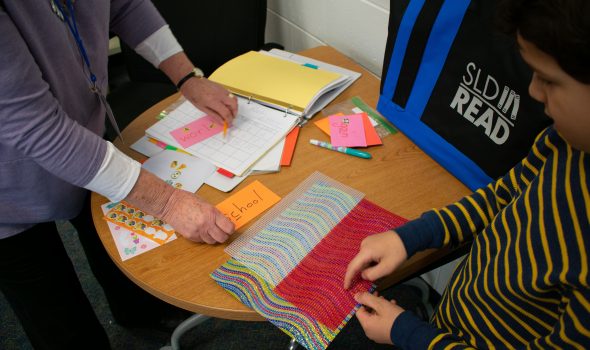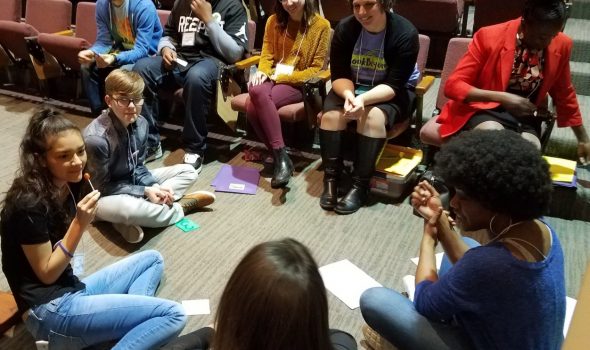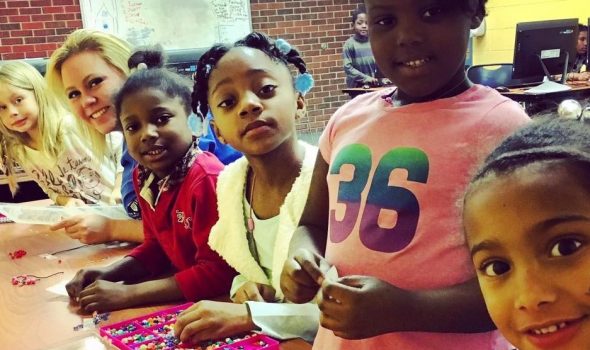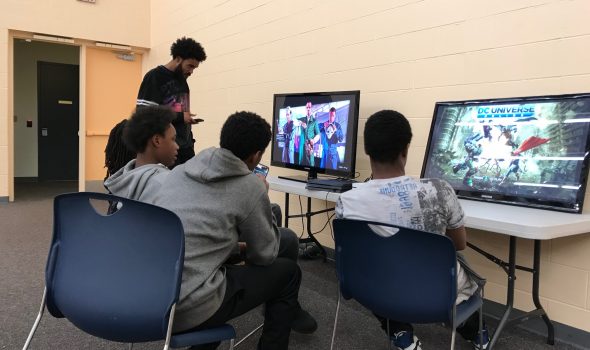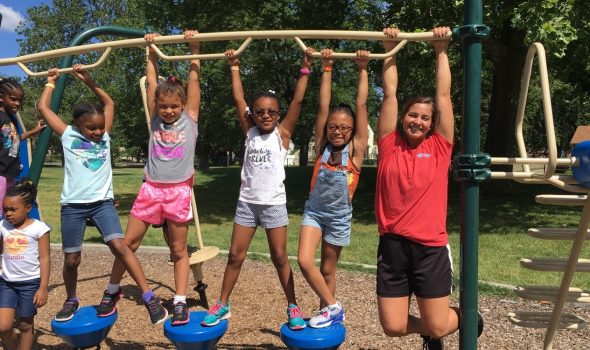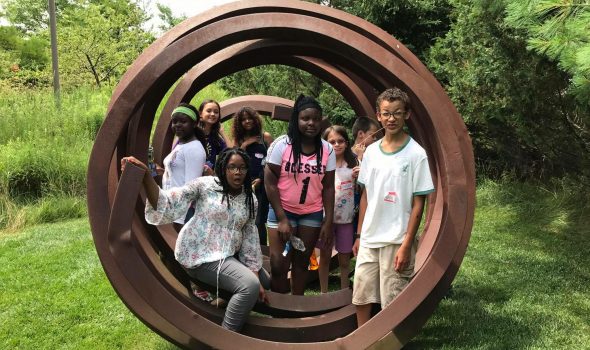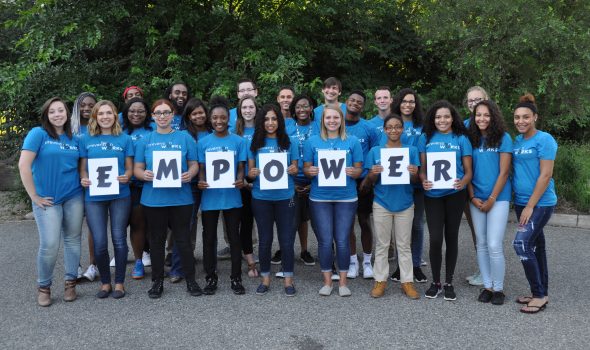Kalamazoo County is home to over 40,000 school-age youth, approximately 5,500 of whom participate in quality out-of-school time (OST) programming. Research demonstrates that when OST participation is high, there is no gap between the math achievement of low- and higher-income children at grade five. We also know that when OST participation is high, youth are more likely to attend and engage in school and to graduate on time.
The Kalamazoo Youth Development Network (KYD Network), formed in 2000 with the support of the Irving S. Gilmore Foundation (Foundation) and others, serves as the OST intermediary for Kalamazoo County. Our vision is that all youth are college-ready, career-ready, and community-ready by 21. We achieve this vision by ensuring that all Kalamazoo County youth, ages 5 to 21, have access to high-quality, youth-driven OST experiences that are inclusive, culturally relevant, well coordinated and that use resources efficiently to reduce disparities among youth. We work directly with more than 40 youth-serving organizations, many of which are funded by the Foundation.
Over the past four years, through the support of the Foundation, KYD Network has undergone a transformation. Our reach has increased from having seven youth-serving organizations in our “cohort” to more than 40. The tie that binds the cohort is a common focus on quality, because research shows that the higher the quality of the learning environment in OST, the better the outcomes for youth.
In order to better understand how to improve quality of OST programming, KYD Network partners with the David P. Weikart Center for Youth Program Quality to implement the Youth Program Quality Intervention (YPQI) with our 40 cohort members. The YPQI is an evidence-based continuous quality improvement process that requires organizations to use a tool called the Youth Program Quality Assessment (YPQA). This tool has been researched and proven to be a reliable and valid measure of program quality for youth-development organizations. YPQA data are collected three times a year so that organizations can make improvements in their programming. Data from internal and external assessments are compared and each organization has access to a national database so that it can gauge its performance to similar organizations across the country.
Data from the YPQA have shown steady improvements in the quality of learning environments in our cohort (visit our website at www.kydnet.org for details). This is important because, again, we know that the higher the quality of the learning environment, the better the outcomes for youth. KYD Network also focuses on social-emotional learning (SEL) and uses the Devereux Student Strengths Assessment (DESSA) to track improvements in youth who participate in OST programming. Research demonstrates that as youth gain SEL skills — self-management, goal directed behavior, decision making — they do better in school and have more prosocial behavior. We have documented that the longer youth attend our cohort member’s programs, the more they gain these important skills.
A critical element to creating high-quality OST programming is youth voice, providing intentional and authentic opportunities for youth to design, implement, and evaluate OST programming and shape their community. KYD Network facilitates the Kalamazoo County Youth Cabinet (KCYC), a youth council made up of 10 youth from the county who work on issues they have identified as important to them and their community. KCYC is currently partnering with Kalamazoo Loaves and Fishes on a photo-voice project to identify food insecurity in their lives and communities. Through workshop creation and facilitation, they are also helping to create learning opportunities for youth and adults to become allies in reducing stigma around mental health, creating a cadre of trained adults who can better support youth. The Foundation supported KYD Network’s partnership with The Neutral Zone, a youth-driven organization in Ann Arbor, Michigan, to provide training and coaching to KCYC during its first year of operation. KCYC has utilized and shared the skills learned from The Neutral Zone with both new members and other Youth Advisory Councils.
Through the support of the Foundation, KYD Network offered two workshops in collaboration with Dr. Robert Root-Bernstein, a MacArthur Fellow, eminent research physiologist, leading authority on the connection between art and science, and co-author of the New York Times best-selling book, Sparks of Genius. These workshops addressed the integration of the arts into science, technology, engineering, and mathematics, thereby converting “STEM” to “STEAM.” Dr. Root-Bernstein further guided participants through his 13 thinking tools for creative problem-solving and provided hands-on strategies for helping youth gain the skills they need to be successful in the 21st century.
Over the last four years, KYD Network has been able to create a well-functioning OST system guided by quality standards, common outcomes for youth, core competencies for Youth Development Professionals, a community-wide approach to summer learning, and collaboration among our cohort members. The Foundation continues to play an instrumental role in supporting KYD Network’s growth and impact, helping to ensure that all youth are college-ready, career-ready, and community-ready by 21.
For more information, visit www.kydnet.org.
